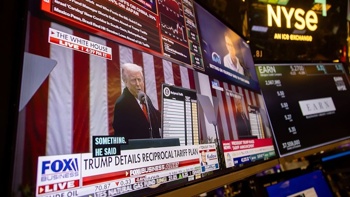It’s one of the busiest global shopping days of the year, offering the biggest discounts just in time for the holiday season.
But Black Friday deals may not always be as good as they seem, with more and more retailers getting caught offering “fake sales” through hidden price hikes.
Fake sales or “rollercoaster pricing” is when a retailer gradually hikes a product’s price in the lead-up to a sale day - like Black Friday - before suddenly dropping the price and advertising a discount.
“It’s an interesting tactic, but we have seen since last year to this year’s sales that it has become a little bit more of a trend,” PriceSpy tech commentator Tim Provise told Focus.
Some recent examples of rollercoaster pricing include the Remington Pro-Air Turbo hairdryer which was priced at $48 in mid-October, before spiking to $59 at the start of the month and this week returning to $48 again.
Meanwhile, the Kenwood Chefette mixer was $134 before it jumped in price by $10 on November 1 but has since returned to its original price.
/cloudfront-ap-southeast-2.images.arcpublishing.com/nzme/CW6H5ZN4VFAETGVUOFLMC6Y63A.jpg)
Black Friday sale. Photo / Ben Dickens
Consumer NZ spokesperson Jessica Walker said she hoped it wasn’t a deliberate effort by retailers to “con shoppers” but still urged consumers to be aware.
“They’re kind of playing with fire if they are misleading shoppers,” Walker said. “So that’s something that retailers need to be really careful of.
“That’s why it’s so important that shoppers take that little bit of responsibility to do the research themselves. In an ideal world, nobody would have to spend five minutes doing a little bit of googling before they hit a store but I think it’s in everybody’s best interest to do that.”
- Statistics reveal how much Kiwis spent on Black Friday sales
- Shoppers warned to be careful of fake 'sales' ahead of Black Friday
Black Friday this year is predicted to rake in the biggest retail spend yet.
PriceSpy data shows the likes of laptops and home security cameras are predicted to cost 17 per cent more, while espresso machines will likely see an 11 per cent hike.
And with Kiwis expected to drop an average of $806 on deals - financial advisers are warning shoppers to spend cautiously.
“It’s like the Bermuda triangle of personal finance because you’ve got Christmas, you’ve got the holidays and then you’ve got back to school and, by the time you sail through all those things, it’s quite difficult to get through without having too much debt,” Sorted personal finance lead Tom Hartmann said.
/cloudfront-ap-southeast-2.images.arcpublishing.com/nzme/CWUCVNSYWNCGXPHY2TL5PBVVAU.jpg)
Gary Rohloff, the CEO of Laybuy. Photo / Jason Oxenham
It’s seeing more Kiwis turn to buy now, pay later schemes like Laybuy.
“People tend to look at Christmas as a way of putting the last year behind them and having a little bit of a good time,” Laybuy managing director Gary Rohloff said. “So Laybuy helps because if shoppers are looking at the deals that are coming through this weekend with Black Friday, those purchases are paid off before Christmas because we run for six weeks and we’re interest-free.
“We do our bit to ensure that we’re not advancing credit to people that the Credit Bureau would suggest cannot afford it. And then there is a personal responsibility and you need to be cautious about what you’re going to spend.”
But there’s a reminder not to get carried away.
“If we don’t think about it as borrowing, that unfortunately gets us into trouble, particularly when we have too many of them going at once,” Hartmann added. “It’s very easy to overextend yourself and just stretch a bit too far.”
The good news is there will be some decent and legitimate discounts on offer this year - especially for gaming enthusiasts.
More than half the products in the games and consoles category experienced price reductions last year with PlayStation games reduced by up to 43 per cent.
Take your Radio, Podcasts and Music with you









